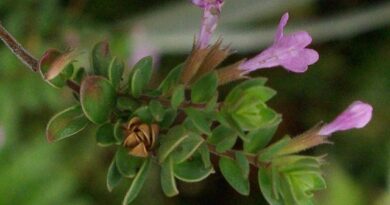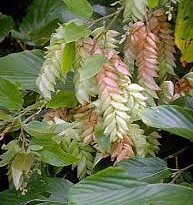Unknown Amazing Medicinal Values of Burdock Root
Burdock is a biennial plant in the daisy family, the root contains health-promoting antioxidants including quercetin, luteolin and phenolic acids.
It can be consumed in different forms, either as powdered, fresh, dried or tea form to promote detoxification and circulation, strengthen the lymphatic system, protect you against diabetes and heal skin conditions like acne, eczema and psoriasis.
Burdock root is a vegetable that’s native to northern Asia and Europe, though it now grows in the United States, too. The deep roots of the burdock plant are very long and either brown or nearly black on the outside. Burdock root is also used to combat cancer and improve arthritis.
Burdock root has been used for centuries in holistic medicine to treat a variety of different conditions. Traditionally, it was most commonly used as a diuretic and a digestive aid.
Now, researchers have discovered numerous potential uses and health benefits for burdock root. These benefits may be extensive enough to warrant using burdock root as a complementary treatment for certain conditions.
Read Also: Arrowroot: Importance and Health Benefits

Arctium lappa, commonly known as burdock, is being promoted/recommended as a healthy and nutritive food in Chinese societies. Burdock has been used therapeutically in Europe, North America and Asia for hundreds of years.
The roots, seeds and leaves of burdock have been investigated in view of its popular uses in traditional Chinese medicine (TCM).
In this review, the reported therapeutic effects of the active compounds present in the different botanical parts of burdock are summarized.
In the root, the active ingredients have been found to “detoxify” blood in terms of TCM and promote blood circulation to the skin surface, improving the skin quality/texture and curing skin diseases like eczema.
Antioxidants and anti-diabetic compounds have also been found in the root.
In the seeds, some active compounds possess anti-inflammatory effects and potent inhibitory effects on the growth of tumors such as pancreatic carcinoma.
In the leaf extract, the active compounds isolated can inhibit the growth of micro-organisms in the oral cavity.
The medicinal uses of burdock in treating chronic diseases such as cancers, diabetes and AIDS have been reported.
However, it is also essential to be aware of the side effects of burdock including contact dermatitis and other allergic/inflammatory responses that might be evoked by burdock.
Burdock Root Benefits

1. It’s a powerhouse of antioxidants
Research from 2010 has shown that burdock root contains multiple types of powerful antioxidants, including quercetin, luteolin, and phenolic acids.
Antioxidants protect cells in the body from damage due to free radicals. They can help treat and prevent a number of different health conditions. The antioxidant action helps reduce inflammation. One 2014 study found that burdock root reduced inflammatory markers in the blood for patients with osteoarthritis.
2. It removes toxins from the blood
One of the most common traditional uses for burdock root has been to purify the blood. Recent evidence has found that burdock root can remove toxins from the bloodstream. A 2011 study found that burdock root effectively detoxified blood and promoted increased circulation.
3. It may inhibit some types of cancer
Burdock root, as it turns out, may not only purify the blood. It may also inhibit certain types of cancer.
The 2011 study also found that burdock seeds had “potent inhibitory effects” on the growth of tumors caused by cancers like pancreatic carcinoma.
Another 2016 study found burdock root significantly interfered with cancer cell growth. While more research is needed to determine the full effects of burdock seeds on different types of cancers and tumors, this is still a significant finding.
4. It may be an aphrodisiac
Another traditional use of burdock root is as an aphrodisiac. A 2012 study on male rats found that the extract of burdock root had an aphrodisiac effect. The extract enhanced sexual function and increased the amount of sexual behavior in the male rats.
More research is needed on humans, but anecdotal evidence supports this claim.
5. It can help treat skin issues
Burdock root has long been used to treat skin conditions like acne, psoriasis, and eczema. The anti-inflammatory and antibacterial properties of the root can help resolve skin issues when it’s applied topically to the skin.
One study from 2014 even found evidence that burdock root may help treat topical burns.
Read Also: Ways of Preparing Plantain Suckers for Planting
Potential risks and side effects
There’s limited or no research available on the pediatric uses of burdock root, and its safety hasn’t been studied in children. Because of this, you should never give your child burdock root unless under the supervision of a doctor.
Some potential risks of burdock include the following:
- Burdock is considered to be safe to eat, but you should only buy it from reputable sellers and should never collect it in the wild. The Burdock plant resembles belladonna nightshade plants, which are highly toxic. They often grow together.
- If you’re taking burdock supplements, take small doses only in moderation. More research is needed to determine the safety of the supplement.
- Burdock root is a natural diuretic, so you shouldn’t take it if you’re dehydrated. You also shouldn’t take it if you are also taking other diuretics or water pills, as it can increase dehydration.
- If you’re allergic to chrysanthemums or daisies, you may be at an increased risk of having an allergic reaction to burdock root and should avoid it.
- Pregnant women or women trying to become pregnant shouldn’t take burdock root or supplements.
Forms and Doses
There are a number of different forms of burdock root available. These include:
- Burdock tea
- Fresh burdock root
- Dried root powder
- Burdock oil or burdock extract
Burdock root can be consumed safely in moderation, and you can safely drink one cup of burdock tea a day. When it comes to supplements, follow your doctor’s instructions and the instructions that come with the supplement. Supplements are not monitored by the Food and Drug Administration (FDA) and could have issues with quality, purity, or dosage. If you’re purchasing extracts, oil, or dried powder, always purchase from a reliable source.
Consuming fresh burdock root is healthier and safer than taking supplements. Incorporating burdock root into your diet can be as simple as learning a few new recipes. To cook burdock root, you’ll first need to peel it. You can then fry, boil, or sauté it.









